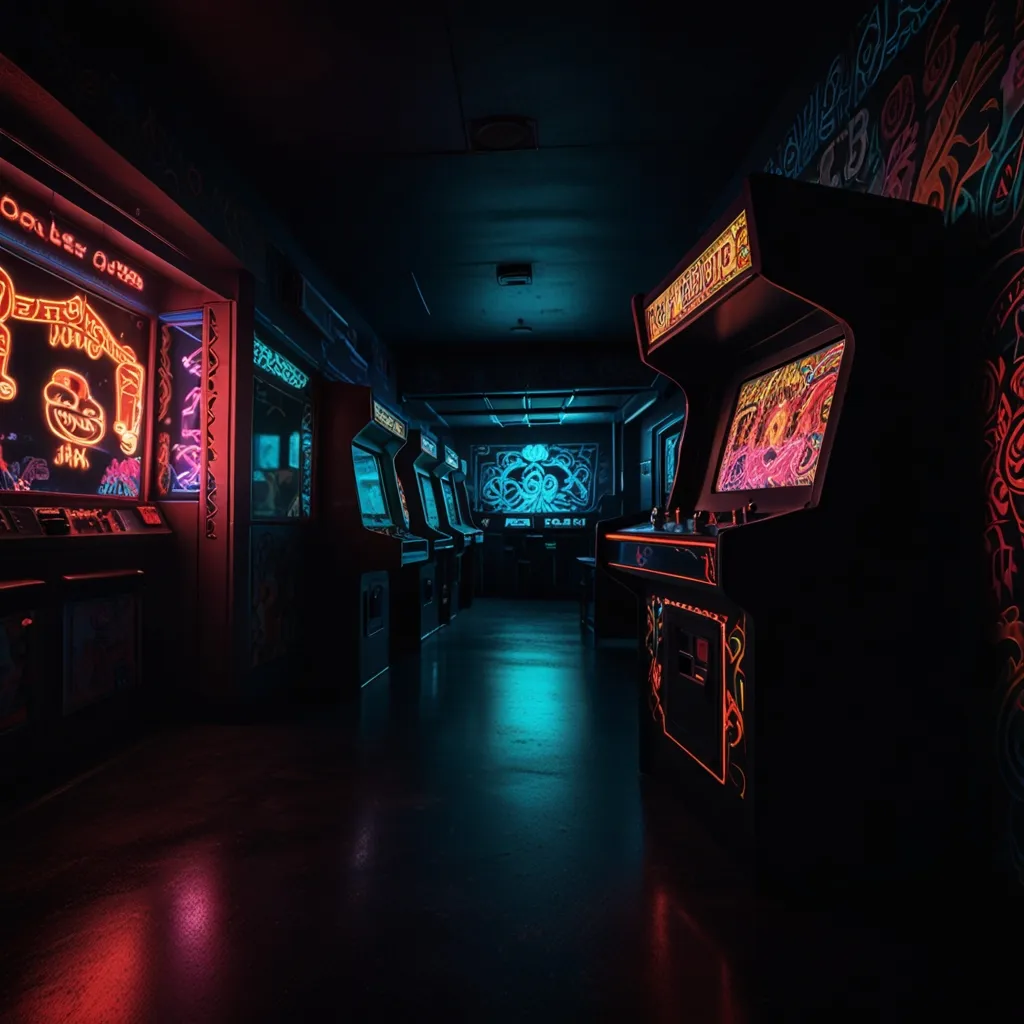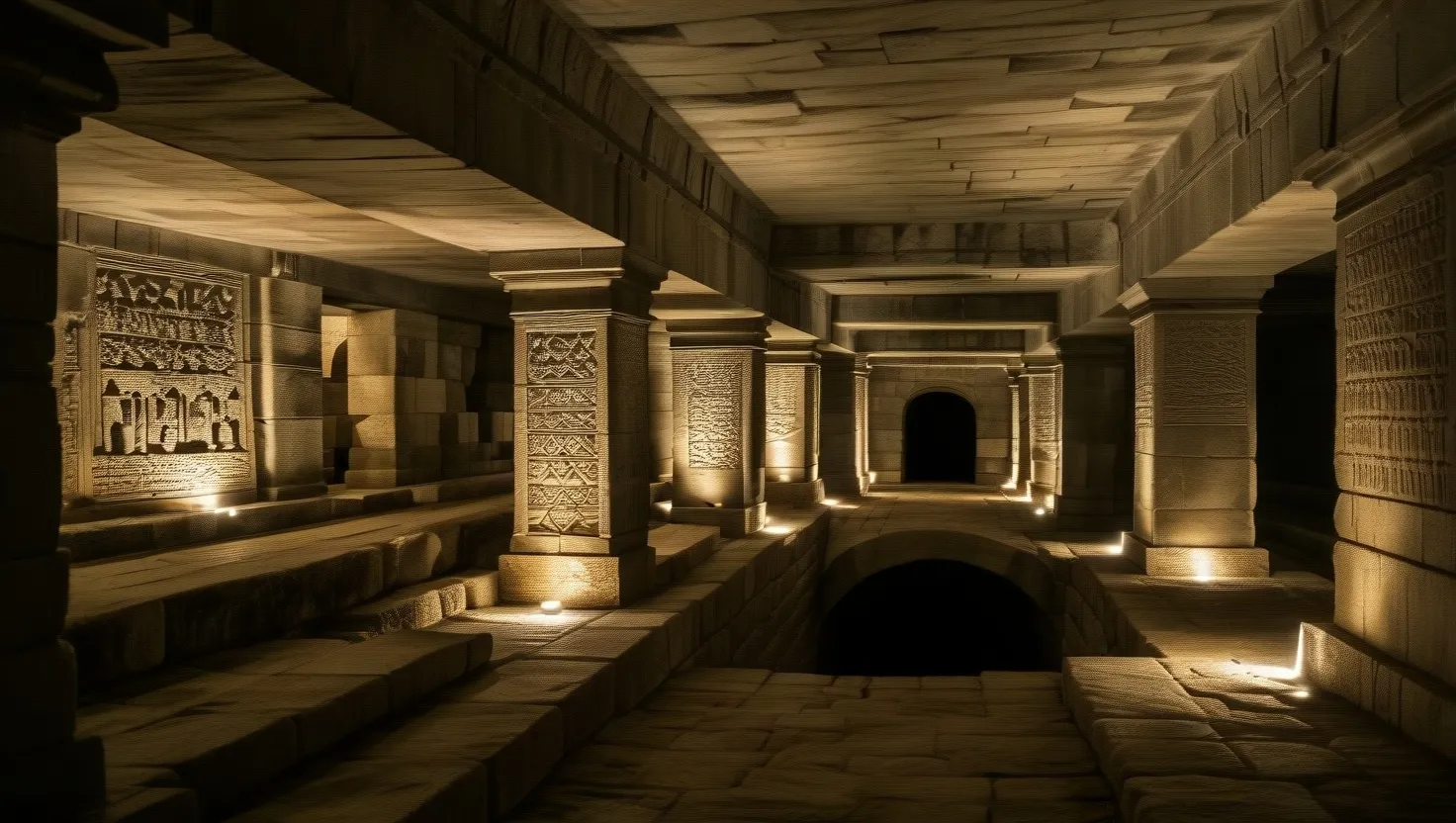The Polybius Legend: A Perfect Storm of Gaming, Conspiracy, and Government Intrigue
Ever heard of Polybius? No, not the ancient Greek historian, but the mysterious arcade game that supposedly appeared in Portland back in 1981. This urban legend has all the ingredients of a perfect conspiracy theory - mind control, government experiments, and unexplained illnesses. Let’s dive into this fascinating tale and separate fact from fiction.
Picture this: It’s the early 80s, and arcade games are all the rage. Suddenly, a new game called Polybius shows up in Portland. It’s unlike anything anyone’s ever seen before. Players are mesmerized by its psychedelic visuals and strange sounds. But there’s a catch - people who play it start experiencing some seriously weird stuff.
We’re talking migraines, nausea, amnesia, and even hallucinations. Some players become super aggressive, getting into fights at the arcade. There are even rumors of heart attacks, seizures, and strokes linked to the game. Oh, and let’s not forget the whispers about players disappearing without a trace.
Sounds pretty wild, right? Well, here’s where it gets even crazier. According to the legend, men in black suits would regularly show up to service the machines and collect data. People started speculating that the government was behind it all, using Polybius as some kind of mind control experiment.
Now, before you dismiss this as complete nonsense, let’s look at some facts that make this urban legend so compelling.
First off, vector-based games like Tempest were known to cause issues for some players. In 1982, a 14-year-old named Michael Lopez got seriously ill after playing Tempest at an arcade in Oregon. He experienced vision loss, dizziness, and intense pain. Doctors believed the game’s flashing lights and visual effects triggered a migraine or seizure.
But it doesn’t stop there. There were actual deaths linked to arcade gaming. Jeff Daly died after playing Berserk, likely due to an undiagnosed heart condition. Peter Bukowski suffered a similar fate. And in one tragic incident, a teenager was stabbed to death during a fight over a game.
These real-life events show that the concerns about video games causing health issues weren’t completely unfounded. Parents were understandably worried about this new form of entertainment that seemed to have such a powerful hold on their kids.
Now, let’s talk about the government involvement angle. Believe it or not, the FBI really was monitoring arcades in Portland around this time. They were concerned about drug activity, gambling, and petty crime. In fact, they even planted microphones and cameras inside game cabinets to gather evidence. One of the games they used? You guessed it - Tempest.
And if you think government experiments on unsuspecting citizens is too far-fetched, I’ve got news for you. Ever heard of MKUltra? It was a real CIA program that ran from the 1950s to the 60s, aimed at developing mind control techniques. They used drugs, psychological torture, and all sorts of unethical methods on unwitting subjects. So, the idea of the government using video games for experiments isn’t as crazy as it might seem.
But here’s the thing - despite all these true elements, there’s no evidence that Polybius itself ever existed. No one has ever found an original cabinet or game ROM. The company that supposedly created it, Sinneslöschen, doesn’t seem to have ever been real.
The legend as we know it today seems to have started in 2000 when a listing for Polybius appeared on a website called coinop.org. The person behind this is believed to be Kurt Koller, the site’s owner. From there, it spread to gaming magazines and online forums, growing with each retelling.
Since then, Polybius has taken on a life of its own. It’s been the subject of countless investigations, documentaries, and even references in pop culture. There have been fan-made versions of the game, trying to recreate the legendary experience. But none of these are the original - because there probably never was an original.
So, why has this legend endured for so long? It’s because it’s the perfect blend of truth and fiction. The individual elements - addictive games, health scares, government surveillance - are all based on real events. But they’ve been woven together into a narrative that’s just too good to resist.
It taps into our fears about technology, our distrust of government, and our fascination with conspiracy theories. It’s a story that makes us wonder, “What if?” And in a world where truth is often stranger than fiction, it doesn’t seem too far-fetched.
The Polybius legend also serves as a reminder of how urban legends spread and evolve. In the early days of the internet, a single post on a niche website could spark a story that would captivate people for decades. It’s a fascinating look at how myths are born in the digital age.
In the end, while Polybius itself may not have been real, the story surrounding it tells us a lot about our relationship with technology, our fears, and our endless appetite for a good mystery. It’s a testament to the power of storytelling and the blurry line between fact and fiction.
So next time you’re in an arcade (if you can find one these days), take a moment to appreciate the games around you. They might not be government mind control experiments, but they’re certainly designed to keep you playing. And who knows? Maybe somewhere out there, in a dusty corner of a forgotten warehouse, there’s a Polybius cabinet just waiting to be discovered. But I wouldn’t hold my breath if I were you.






